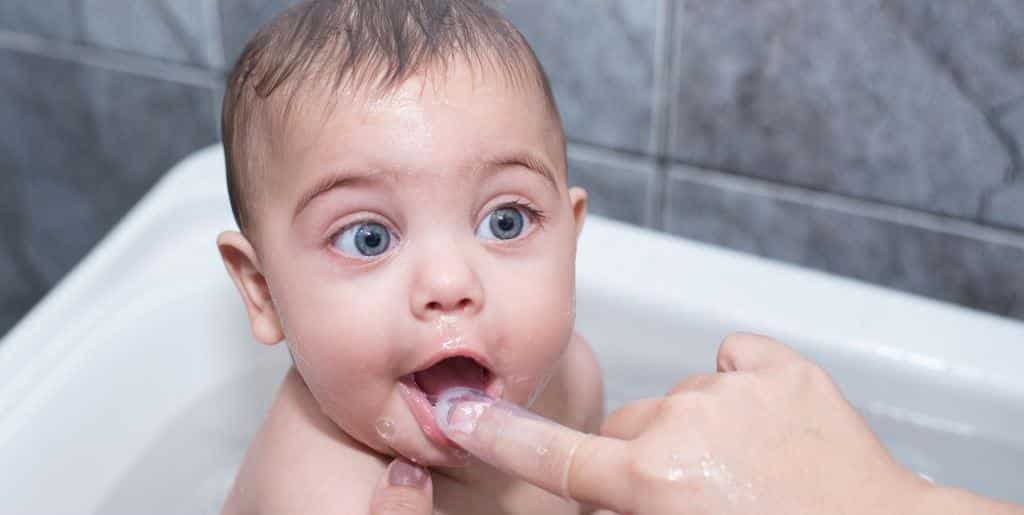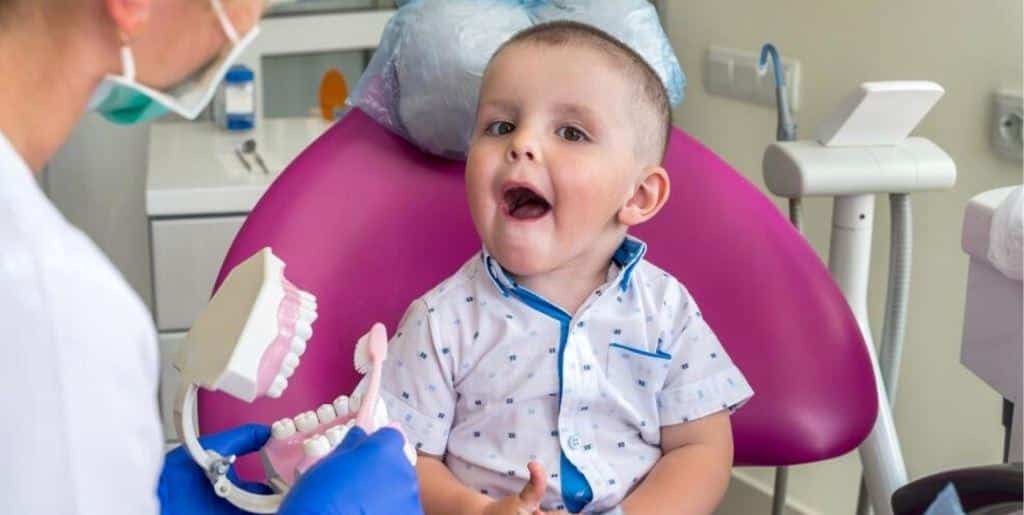Teething is a stage that many parents fear. The baby cries, drools, is irritable and has a fever. Mothers and fathers also have to be particularly careful, because the baby wants to put everything in its mouth. How do you cope with this period? How do you take care of the baby's gums before and during? And most importantly - how do you help your baby to relieve the pain? Read about it in today's text.
Why is teething an important time?
It is difficult to know when babies start teething. The first millipedes may start to appear after three months, others as late as six months. It is also difficult to know how long it will last. The last teeth may appear around the child's second or third year.
IMPORTANT: You should take care of your child's beautiful smile even before the appearance of the first tooth. The best way to do this is to wash the baby's gums with a gauze pad dipped in boiled and cooled water.
Back to the topic - why is teething an important stage? Why are teething teeth so important? First of all - if they are not properly cared for, your child may have trouble eating and even sleeping. Many parents do not take proper care of their offspring's milk teeth. They think that proper dental care should start when the little one has all permanent teeth. Nothing could be further from the truth!
The way in which the deciduous teeth are cared for has a huge impact on the child's smile in the future. Caries can already develop at this stage (you can read more about caries in children here: "Child caries - causes, symptoms and treatment").
If the deciduous tooth has to be removed as a result of this condition, the permanent teeth may grow crooked. All of this can be prevented right from the teething stage. So from the very beginning, the habit of proper oral hygiene should be consolidated in the toddler. Read our text: "How do you look after milk teeth in children and why is it so important?".

Symptoms of teething
Teething is not the most pleasant process for a child. It is often accompanied by symptoms such as lack of appetite, fever and diarrhoea. As we mentioned earlier, the baby cries, is irritable, can be and drowsy and have trouble falling asleep.
Drooling can be particularly troublesome, as it can lead to many irritations. Parents must ensure that their child's oral area is kept dry despite the condition.
Particularly troublesome are swollen gums that hurt and itch. The child may put various objects in his mouth to deal with the itching. Teething is also accompanied by a fever, which can last for several days.

How to care for your child's gums before and during?
As we mentioned earlier, infant oral hygiene is particularly important before and during teething. Stock up on a silicone pad to use to remove plaque. You can also simply use a gauze pad and boiled, cooled water.
Remember to remove all food debris from around the gums! This step is very important so that your baby is not at risk of infection during teething. When should you start cleaning your baby's gums with gauze? It is a good idea to do this from the first month of your baby's life.

How do you look after your child's first teeth?
First teeth appear? Buy a toothbrush with soft bristles now and let it serve as a bite at first. Later on the child will use it more consciously. It is very important to reinforce the habit of brushing teeth from the very beginning. Try to associate this activity with something pleasant. Encourage or reward them.
So choose a toothbrush, a gentle toothpaste and get to work. Remember that a toddler should brush their teeth at least twice a day. Incorrect oral hygiene of your child can result in the appearance of afts, thrush and other mechanical injuries. This can be avoided!

Child's first visit to the dentist
Dear parent, don't worry - the teething period can be survived. Just remember, as soon as the first tooth appears, to enrol your child in the adaptation visit (read: "Your child's first visit to the dentist in the UK").
This is a very important step - Regular visits will ensure that your little one will be able to enjoy a healthy smile in the future. We would like to remind you that it is not only an aesthetic issue. Incorrect oral hygiene and crooked teeth can lead to many unpleasant health consequences. You can read more about this in our article: "Crooked teeth - causes and ways to get rid of an embarrassing smile".
The first tooth is therefore high time for the first visit. We encourage you to use the services of our clinic - our dentists know exactly how to behave with little ones!
Take a look at our Facebook and stay up to date!

